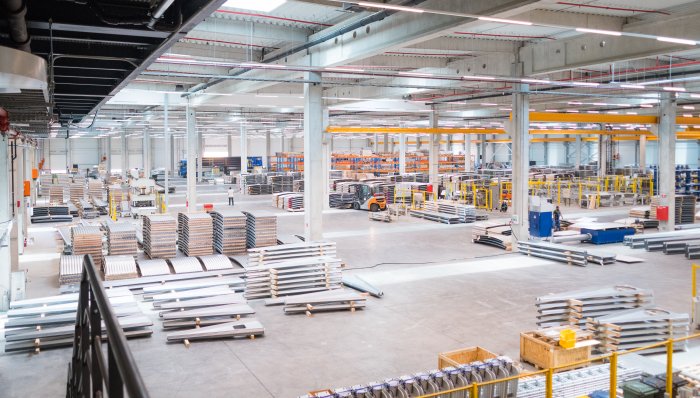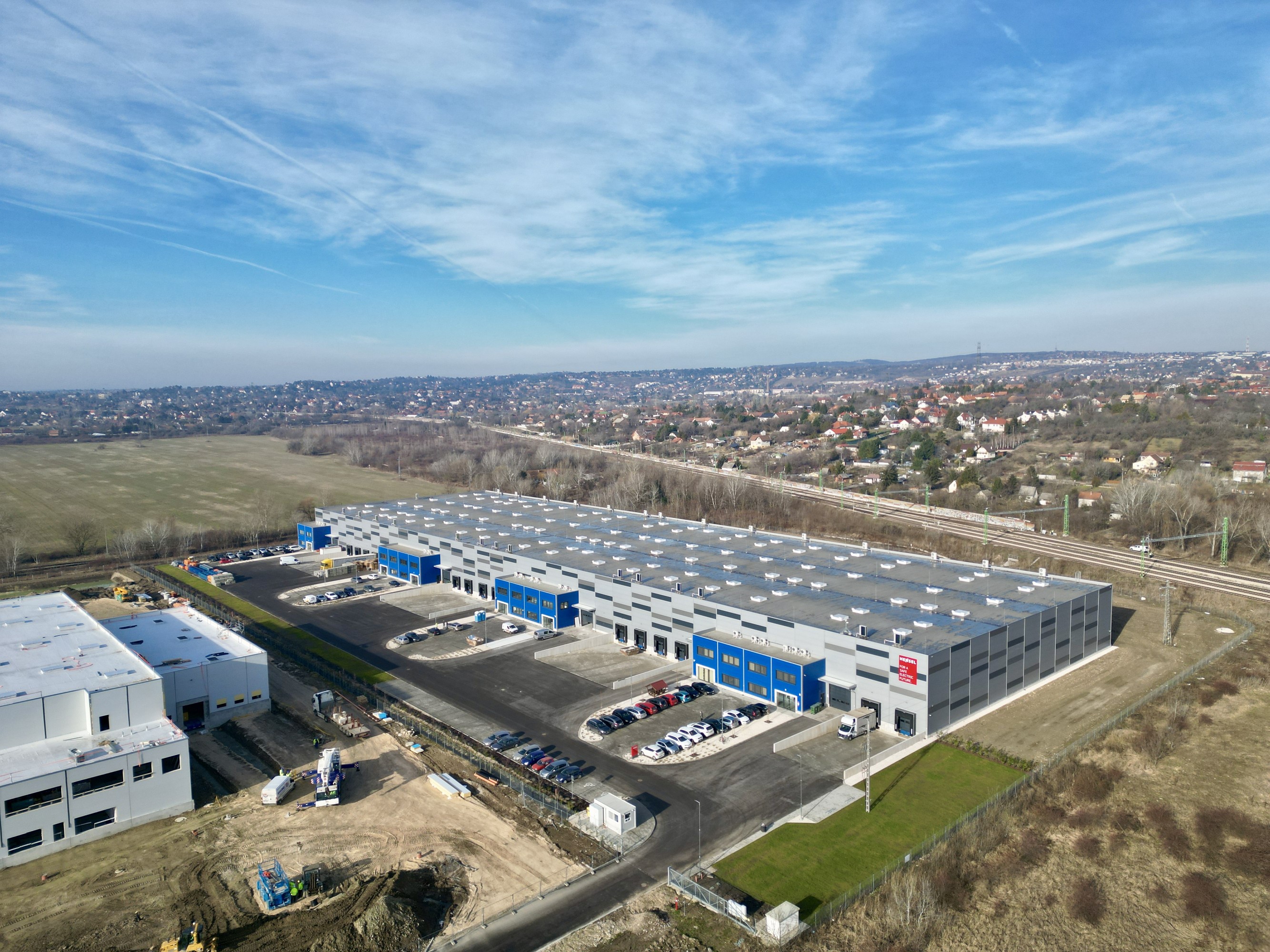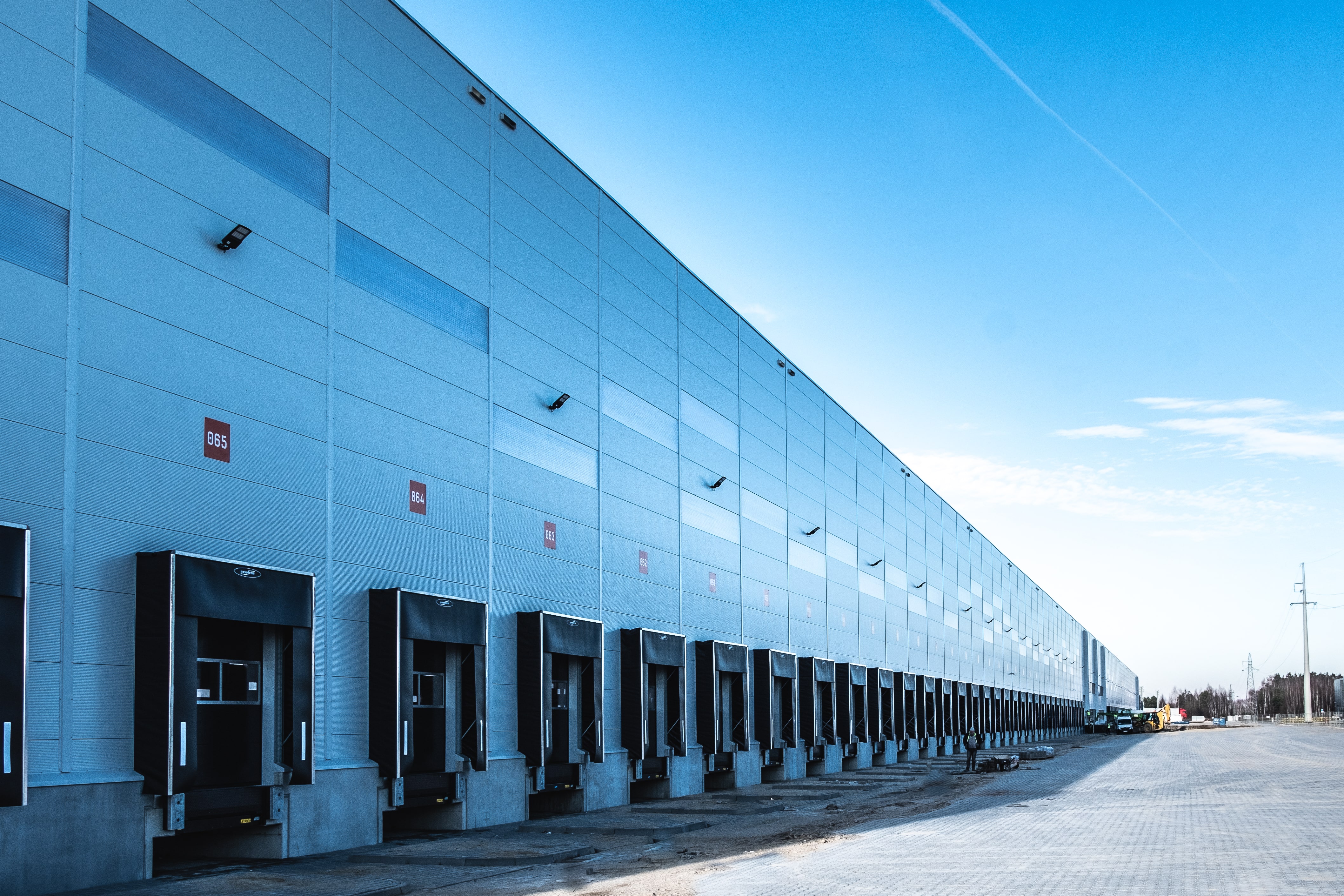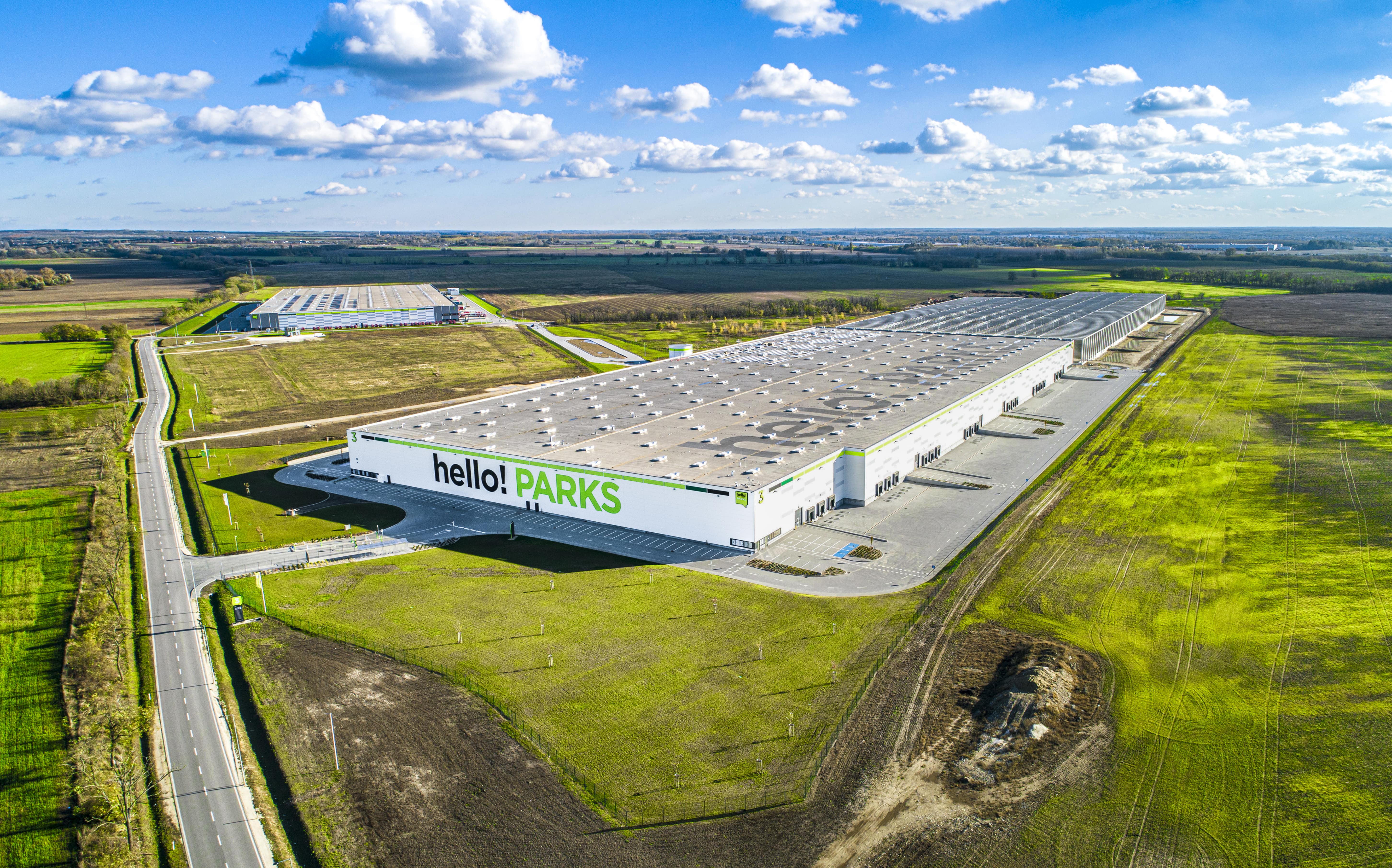Industrial Sector Continues to Thrive

CTPark Budapest West.
The Industrial real estate segment continues to be strong, with Hungary having the lowest vacancy rate in the Central European region. However, market analysts say more speculative development is necessary for further market growth, particularly in regional cities.
Total modern industrial stock in the Budapest area for the first quarter stood at more than 2.4 million sqm, according to the Budapest Research Forum (the BRF, consisting of CBRE, Colliers International, Cushman & Wakefield, Eston International, JLL, and Robertson Hungary). However, there are few, if any, logistics buildings available and an overall vacancy rate of 2.6%. The most significant completion in Q1 was 40,750 sqm of new space at CTPark Budapest East.
CTP argued that they are the largest industrial park owner and developer in Hungary at its recent CTP Business Breakfast, citing 600,000 sqm of almost fully let space across the country now, with plans for that to rise to 750,000 sqm by the close of the year and to one million sqm by the end of 2022.
The company has eight projects under construction in the Budapest area, Debrecen, Győr, and Szeged. Of the 235,000 sqm CTP currently has under construction, 60% is pre-let; from the 322,000 sqm future pipeline, 9% is pre-let.
Despite the impressive figures, the Hungarian industrial market can be seen as underperforming compared to other major Central European markets. The Czech Republic, for example, has more than nine million sqm of class “A” industrial space and an overall decreasing vacancy rate of 3.6%.
It can also boast an established market in several major industrial centers such as Pilsen, with 27% of the total product under construction, compared to 20% in the Prague area, according to the Czech Industrial Research Forum (consisting of CBRE, Colliers International, Cushman & Wakefield, and JLL).
Romanian Potential
Romania is seeing development activity reflect its potential as the second-largest country in the CEE region. The stock of industrial space in Romania has broken the five million sqm threshold and will reach around 5.5 million sqm this year, according to CBRE.
Gábor Halász-Csatári, head of industrial at Cushman, argues that Budapest is in a similarly strong position to Prague, although lacking the latter’s regional hubs. With regard to development strategies in the current climate of high demand and low vacancy rates, developers are constructing BTS facilities with an additional speculative element.
“In response to the high demand levels seen in 2020, a revival of development activity is in evidence, and an improved level of new space will be delivered in 2021/2022, amounting to nearly 300,000 sqm of industrial space; 37% of the 2021 pipeline is already pre-let,” comments Cushman & Wakefield.
JLL has recorded 252,000 sqm of space under construction in Hungary with a scheduled handover date of this year, from which around 50% is already pre-let. As of the end of the quarter, a total of 60% of space stood vacant and there are only two existing schemes with the availability of more than 5,000 sqm of space.
“New developers are entering the market, which strengthens the completion. HelloParks entered the market in 2020, and Panattoni announced its Hungarian expansion in 2021 with two projects in the pipeline,” says JLL in its “Budapest City Report Q1 2021.”
This article was first published in the Budapest Business Journal print issue of July 2, 2021.
SUPPORT THE BUDAPEST BUSINESS JOURNAL
Producing journalism that is worthy of the name is a costly business. For 27 years, the publishers, editors and reporters of the Budapest Business Journal have striven to bring you business news that works, information that you can trust, that is factual, accurate and presented without fear or favor.
Newspaper organizations across the globe have struggled to find a business model that allows them to continue to excel, without compromising their ability to perform. Most recently, some have experimented with the idea of involving their most important stakeholders, their readers.
We would like to offer that same opportunity to our readers. We would like to invite you to help us deliver the quality business journalism you require. Hit our Support the BBJ button and you can choose the how much and how often you send us your contributions.







